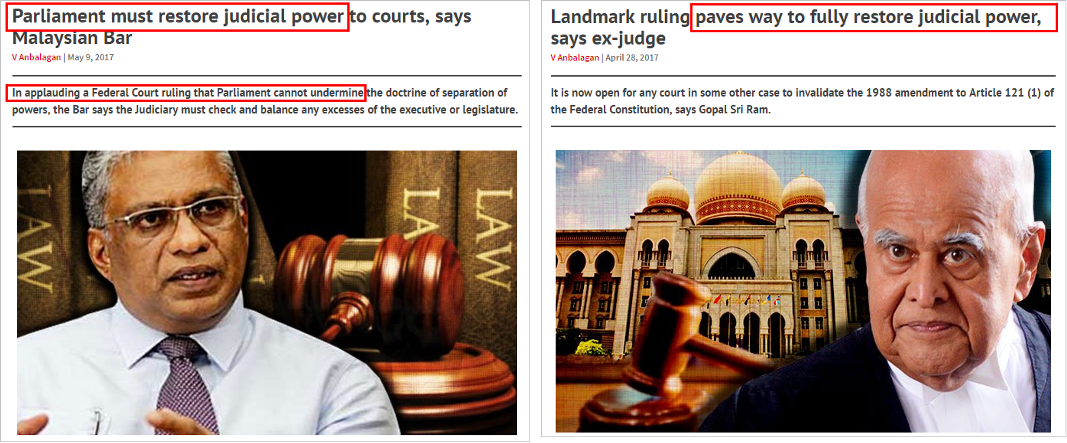Eh, if the Government wants to build an LRT on your house, who decides on compensation?

- 1.3KShares
- Facebook1.2K
- Twitter12
- LinkedIn13
- Email20
- WhatsApp54
Let’s say the Government wants to tear down YOUR HOUSE and build an LRT station on it or something. How much should they pay the house owner? Of course you would want to be adequately compensated for losing your home.

The same fate happened to developer Semenyih Jaya Sdn. Bhd. when the Hulu Langat Land Administrator bought their land to build a highway in Kajang in 1998. Unfortunately, Semenyih Jaya was only compensated RM20.8 mil by assessors without taking into account loss of profits. The developer said RM45 mil would have been a fair amount (they were in the midst of building 57 factory lots). So they SUED the Hulu Langat Land Administrator.
Actually this kind acquisition happens a lot. Recently, residents of Jinjang Selatan Tambahan were forced to move out because the Government wants that area to build…ironically…more houses (wth?). Then another developer’s 26-acre land was almost acquired by the Selangor government to build a mosque. You can Google more examples. Basically, when the Government wants to buy your property, you cannot kata Tak Nak. You will however be compensated la.
Dr. M took away the judges powers on compensation 30 years ago

Compensation unfortunately is not decided by the owner, so this is not your chance to upgrade to a bungalow 😛 Instead, the Land Acquisition Act states that two assessors (one of whom will be appointed by the Government) will decide on how much compensation should be paid to land owners.
Before 1984, judges used to make this decision and the assessors who sat with him merely provided advice. Between 1984 and 1988, a judge sat alone to hear the appeal on compensation. After 1988, the rule was changed for assessors to have the final say while sitting with the judge, and the amount could not be appealed further.
[Backstory: In the 80s, the judiciary never hesitated to flex their muscle. This sometimes put them at odds with the Government, so PM Dr. Mahathir Mohamad had a turbulent relationship with them. In 1988, Mahathir removed five top judges from their post. Things were never the same for Malaysian Courts since. Read about the drama here.]

Usually, in other non land-related cases, judges lawfully have the power to decide on compensation. For example, work accident compensation or damages if someone defames your name. So why should land compensation be any different? The Land Act was essentially stripping judges of that power and giving it to assessors. So, Semenyih Jaya challenged that part of the Act – Section 40D(1) and (2) – arguing that it was ‘not constitutional’ (meaning it does not adhere to the the highest law in the country, the Constitution ).
“Our client’s stand is that assessors cannot sit in the High Court and make a final decision.” – Su Tiang Joo, the developer’s lawyer, quoted in theedgemarkets.com
*Click here for the court document.
But what if the assessors pakat to offer lower compensation?

Giving assessors the power to decide on compensation raised concerns. What if they pakat to give a lousy price? That would be very unfair to land owners, as in the case of Semenyih Jaya. By rule, assessors are supposed to follow market price benchmark, though there is a possibility that they might want to compensate you, say, RM650,000, even if your house is really worth RM2.6 billion.
You know the saying ‘two heads are better than one’? Well, in this case, three heads are better than two. Having a judge in the picture sorta adds one layer of ‘insurance’ for land owners. A judge can be your advocate if you feel the assessors’ offer is inadequate. Justice Zainon Ali, one of the judges presiding in the Semenyih Jaya case, said that judges could disagree with the assessors if their offer is inadequate.

Finally, on 20 April 2017, the Federal Court (the most powderful court in Malaysia) ruled to return this power to the judges instead of assessors YAY!
Land owners have been looking forward to the outcome of this case because previously they were at a disadvantage. But the bigger picture here is that the Courts and judges made a firm stand.
“This provision [Section 40D(1) and (2) of the Land Acquisition Act] ignores the role of judges. Compensation should be decided by a judge and no others.” – Justice Zainun Ali, quoted in Free Malaysia Today
This is the Court’s ballsiest move in 30 years!!

For those who have law knowledge, ya’ll will know, but just to explain briefly, there are three branches of Government in Malaysia: Executive (which is the Cabinet), Legislative (which is Parliament – the one that passed the Land Acquisition Act and all other Acts), and Judiciary (courts and judges).
All three are supposed to be independent of each other and cannot override each other’s power…until that 1988 incident when Mahathir removed the five top judges from their post and changed the Constitution to make the Executive more powerful. The Courts really had their wings clipped. This is their boldest move in 30 YEARSSS!
Although it’s rare to see the courts putting their foot down instead of kowtow-ing to the gomen, the past two to three years have been eventful, our lawyer friend, Fahri Azzat, told us. He pointed us to a few cases: One was in 2016, where the Court of Appeal ruled that it was not constitutional for the Sedition Act to convict people just by proving that a seditious statement was made by the person alone. Instead, they said the INTENTION must now be proven.
The second instance was when 82-year-old Muslim intellectual Dr. Kassim Ahmad was arrested in Kulim, Kedah by JAWI officials all the way from the Federal Territories. The Court of Appeal found his cross border arrest and detention exceeding 24 hours to be illegal. When JAWI tried to appeal, the Federal Court dismissed their case.

So it’s nice to see the judiciary reclaiming what they’d lost 30 years ago.
“…no single man or body shall exercise complete sovereign power, but that it shall be distributed among the Executive, Legislative and Judicial branches of government, compendiously expressed in modern terms that we are a government of laws, not of men.” – Justice Raja Azlan Shah, quoted on The Malaysian Bar
This was said in 1975…before the Courts lost their power, and way before the Semenyih Jaya victory. It is a principle they’ve held dear all these years, and hopefully one they will continue to defend in years to come.
- 1.3KShares
- Facebook1.2K
- Twitter12
- LinkedIn13
- Email20
- WhatsApp54



